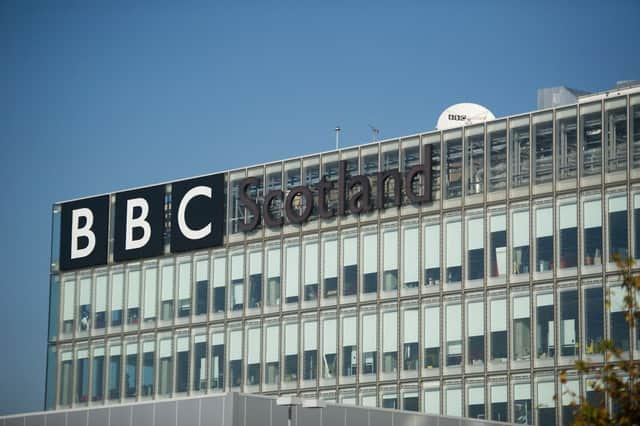Brian Ferguson: Celtic Connections show BBC '˜gets' Scotland


Organisers of the event, which is bringing more than 2500 musicians from around the world to Glasgow, did not make much of it in their publicity material.
But the festival has quietly added on a couple of days this year – extending its running time to nearly three weeks.
Advertisement
Hide AdAdvertisement
Hide AdThis is partly down to audience demand. Tickets for the final night tribute to the late Glasgow guitarist Bert Jansch sold so fast that special guests Robert Plant, Graham Coxon and Bernard Butler will now see out the festival on a Monday evening for the first time.
But the festival’s vast production machine – coordinating 23 events on Saturday alone – was up and running even earlier than normal.
This was, perhaps surprisingly, down to BBC Scotland and a special broadcast of Edith Bowman’s Quay Sessions radio show from a pop-up studio at the CCA on Sauchiehall Street.
Bowman is one of many BBC presenters hosting live shows this month, with Vic Galloway, Mark Radcliffe, Ricky Ross and Janice Forsyth also fronting the expanded coverage.
I have tried and failed to count up the BBC’s live broadcasts and highlights programmes, which are spread across BBC 2 in Scotland, Radio Scotland, Radio 2, Radio 3 and BBC Alba.
Although these broadcasts are ticketed events, they are also free and staged before full houses, such is the demand.
While this is potentially risky for a festival which has well over 100,000 tickets to sell, it also opens up the event to those who cannot afford to attend its regular concerts.
Advertisement
Hide AdAdvertisement
Hide AdThe BBC has been credited in this column before for its hugely-improved coverage of the Edinburgh Festival. But its coverage of Celtic Connections is now arguably the biggest single broadcasting showcase of Scottish culture.
One would expect that the BBC might receive wider recognition for its commitment, particularly from politicians. Think again.
That would be out of kilter with a familiar narrative that the BBC doesn’t “get” Scotland and does not devote nearly enough resources compared to the £320 million worth of licence fees generated here.
Scottish culture secretary Fiona Hyslop, who has been accused of underestimating how much the BBC does in Scotland, has been at the heart of the Scottish Government’s vocal campaign for change.
More recently, there has been repeated lobbying for the BBC to operate under a “federal” structure, with Ms Hyslop and First Minister Nicola Sturgeon calling for dedicated new television and radio channels to be set up.
This vision would now appear to be hopelessly unrealistic given the cutbacks the BBC faces from Westminster. The Scottish Government’s case has also been undermined by a new breakdown of the £190 million a year the BBC spends in Scotland, more than half of which goes on “Scottish-only” content.
Appearing at Holyrood last week, Tony Hall, the BBC’s director general, gave the distinct impression that the best its Scottish critics can hope for is the delivery of a dedicated early-evening Scottish news programme and the devolution of more commissioning and spending.
The latter may prove more problematic to deliver, but critics need only look at the BBC’s growing commitment to Celtic Connections to find a glimpse of a more optimistic future.